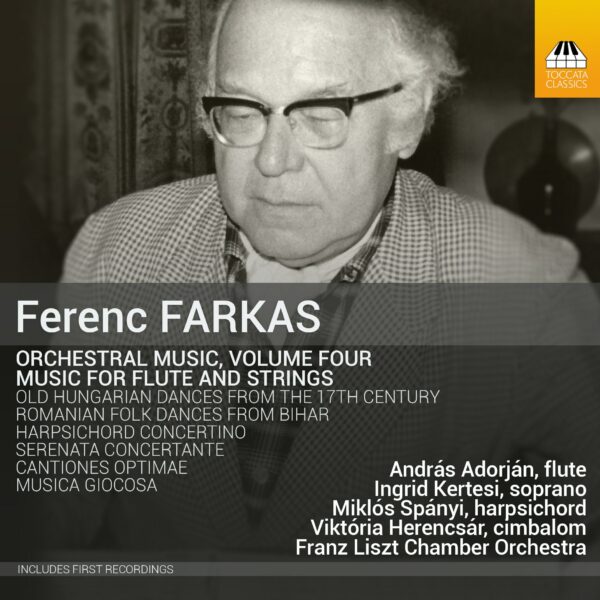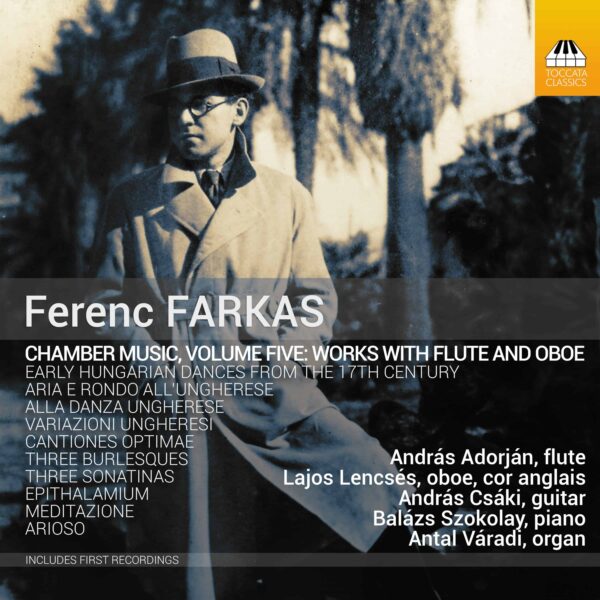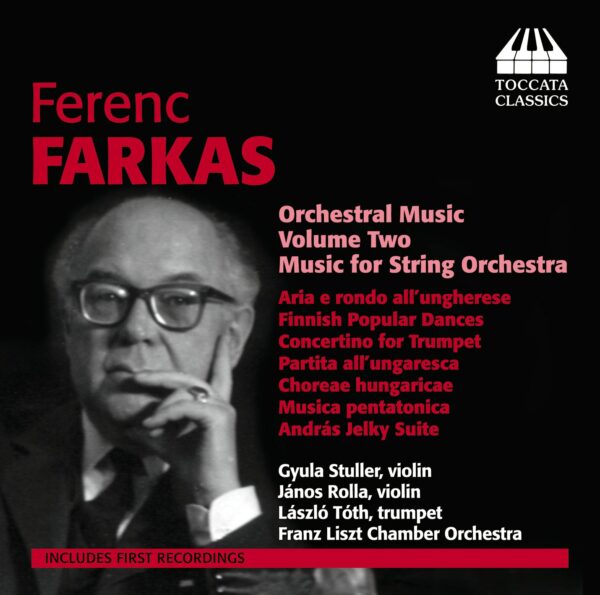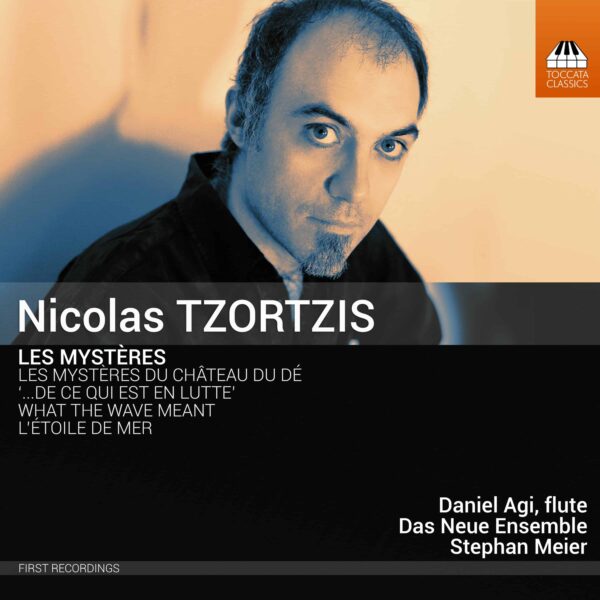Ferenc FARKAS: Orchestral Music, Volume Four: Music for Flute and Strings
This fourth release in a series of recordings of orchestral music by the Hungarian composer Ferenc Farkas (1905–2000) concentrates on his music for flute and strings, highlighting the characteristics that make his music so appealing: catchy tunes, transparent scoring, buoyant rhythms and a fondness for Baroque forms and folk-dances. Two other concertante pieces – featuring soprano and harpsichord – offer contrast.
András Adorján, flute; Ingrid Kertesi, soprano; Miklós Spányi, harpsichord; Viktória Herencsar, cimbalom; Franz Liszt Chamber Orchestra
Listen To This Recording:
- Romanian Folk Dances from Bihar for flute and string orchestra
- I Batoritas a halal ellen (‘Encouragement before death’)
- II Konyorges (‘Imploration’)
- III Maria enek (‘Song to Mary’)
- IV O Jezus (O, Jesus)
- I Intrada
- II Slow Dance
- III Shoulder-blade Dance
- IV Dance of the Prince of Transylvania
- V Chorea
- VI Quasi Minuetto
- VII Dance of Lazar Apor
- VIII Leaping Dance
- I. Allegro
- II. Andante
- III. Allegro
- I. Allegro
- II. Arietta
- III. Gavote con variazioni
- IV. Allegro
- I. Allegro moderato
- II. Andante espressivo
- III. Allegro vivace
Cantiones Optimae for soprano and string orchestra:
Old Hungarian Dances from the 17th Century:
Concertino for Harpsichord and String Orchestra
Musica Giocosa for string orchestra
Serenata Concertante for flute and string orchestra





MusicWeb International :
‘Only the Old Hungarian Dances and the Harpsichord Concertino have been recorded before, which makes this latest volume so intriguing a prospect. … The charming Romanian Folk Dances from Bihar County were written in 1950 and took original material from Bartók’s collection of folk music. … Ingrid Kertesi sings with an attractive richness of tone that remains appropriately scaled for the material. … This [Old Hungarian Dances from the Seventeenth Century] is a zesty piece with a gorgeous Shoulder-Blade Dance (track 8) and opportunities for fast articulation in the finale, an athletic Leaping Dance. Around the years he first began work on those Dances he was completing his Harpsichord Concertino, adeptly played by Miklós Spányi. … Its Hungarian quality is explored most fully in the central movement where fanciful tendrils of national colour can be heard, though the finale is the longest movement. Here there’s plenty of chiming verve, a colourful cadenza, and a very abrupt end. Musica Giocosa dates from 1982 and is a brief four-movement piece of which the quietly serious Arietta is the stand-out. … The Serenata Concertante for flute and string orchestra is the most obviously serious concert piece in this selection of Farkas’ music. There are even elements of dodecaphony though what remains uppermost is the deftness of the writing and the way the thematic material plays back and forth. Birdsong is prominent in the finale, not least in the fanciful and splendid cadenza, brilliantly played by Adorján. The flautist emerges as one of the heroes of the disc and he is splendidly accompanied by the experienced János Rolla who directs the forces of the Franz Liszt Chamber Orchestra. The fine recording venue was in Budapest but, perhaps surprisingly, it was at the Italian Cultural Institute in the city. With full song texts and customarily fine notes, volume four of the series hits the mark once again.’
—Jonathan Woolf, MusicWeb International
Fanfare Magazine :
‘Given the alternately bright and wistful quality of the memorable results, it’s difficult to understand why [Romanian Folk Dances from Bihar County] hasn’t become a pops favorite over the years. […]
The performances are uniformly excellent, though I would point with especial pleasure to flautist András Adorjan’s making light of the Serenata Concertante’s considerable difficulties, and lyric soprano Ingrid Kertesi’s fine enunciation, silvery tone, and warm phrasing.[…] the combination of items on this disc illustrating the breadth of Farkas’s stylistic proclivities, as well as the immediate charm of so much of this material, makes this perhaps the best introduction yet to the composer’s art. Strongly recommended.’
—Barry Brenesal, Fanfare Magazine, July 2016